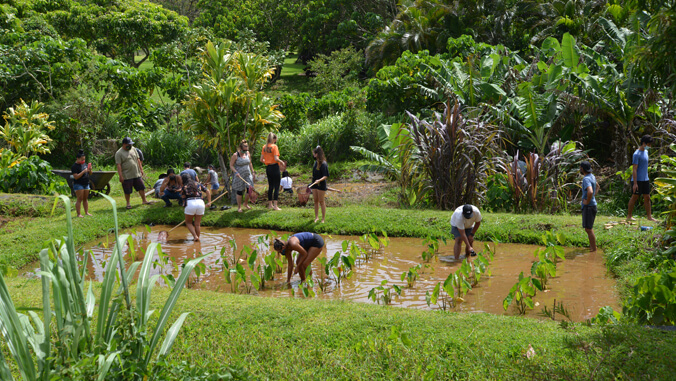
Researchers from the University of Hawaiʻi–West Oʻahu and Kauaʻi Community College are exploring a model for Native Hawaiian and other Indigenous-serving institutions to better prepare students and faculty in the face of emerging technological advances such as generative artificial intelligence (AI). Each campus received more than $800,000 from the National Science Foundation’s (NSF) Tribal Colleges and University Program to support their five-year collaboration in the Partnership in Advancing Computational Thinking (PACT) project.
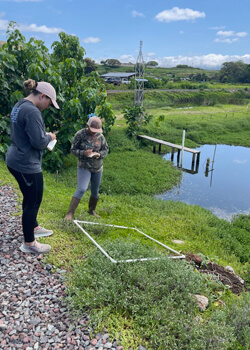
The project, rooted in pilina (relationship) and aloha ʻāina (love of the land), is centered around the development of computational thinking within college courses and career pathways to improve workforce digital readiness and to contribute to students’ economic mobility. The collaboration is led by Kauaʻi CC Principal Investigator (PI) Frankie Harriss and Co-PI Ryan Girrad, and by UH West Oʻahu PI Esther Widiasih and Co-PI Fiorella Penaloza.
“Engaging Indigenous communities in the conversation about and in the education of new emerging technologies is really important. It’s not just about making sure everyone can use the latest tools like AI, but also about including their perspectives in decisions about how these technologies are used,” Widiasih said. “Indigenous knowledge often focuses on taking care of the environment (aloha ʻāina) and on creating a relationship for community well-being (laulima). Both are crucial in ensuring that technology benefits everyone in a fair and ethical way. By listening to Indigenous voices, we can make better choices about the future of technology that respects their rights and values.”
Pathways from Early College
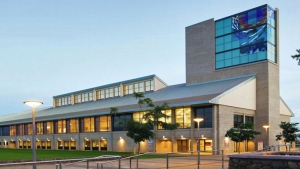
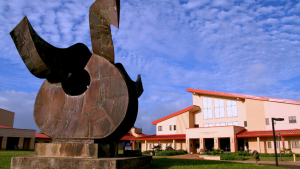
A collaborative partnership will be formed among faculty members and a student research cohort within each campus as well as spanning both campuses. The project plans to build computational thinking pathways and articulation starting from Early College (a UH program for high school students to take college classes) to Kauaʻi CC to UH West Oʻahu.
“Digital literacy, mathematical skills, and computational thinking skills are essential for our digitally intensive, modern workforce, and such skills can provide a pathway for our Native Hawaiian students to higher paying STEM jobs within their home island, the state and beyond,” said Harriss, who is also a vice chancellor at Kauaʻi CC. “Fundamentally, our island and state STEM advancements and security depend upon careers that involve these proficiencies. To that end, Kauaʻi CC is thrilled to be in this collaborative project with UH West Oʻahu for the next five years.”
Widiasih, who is also the chair of the Mathematics, Natural and Health Sciences Division at UH West Oʻahu, said the university is particularly excited to work with Kauaʻi CC, a leader in establishing and nurturing the Early College pathway.
Every college course
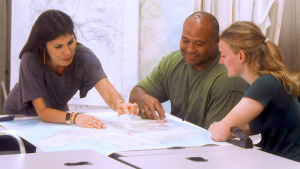
“With the emerging technology, the hurdle to use computer technology in any aspect of life is becoming easier to tackle. This means that every college course can potentially use these computational thinking skills and tools. The challenge for higher education is to ensure that we have the capacity to deliver the necessary preparation and skills to students. This funding from the NSF will help faculty to (re)-equip themselves with these emerging technological skills and help them navigate this new unchartered territory,” Widiasih said.
Work on PACT is expected to begin in August, when the project will convene a faculty hui (gathering) from both campuses to discuss the best ways to integrate computational thinking, AI and coding within their courses.

